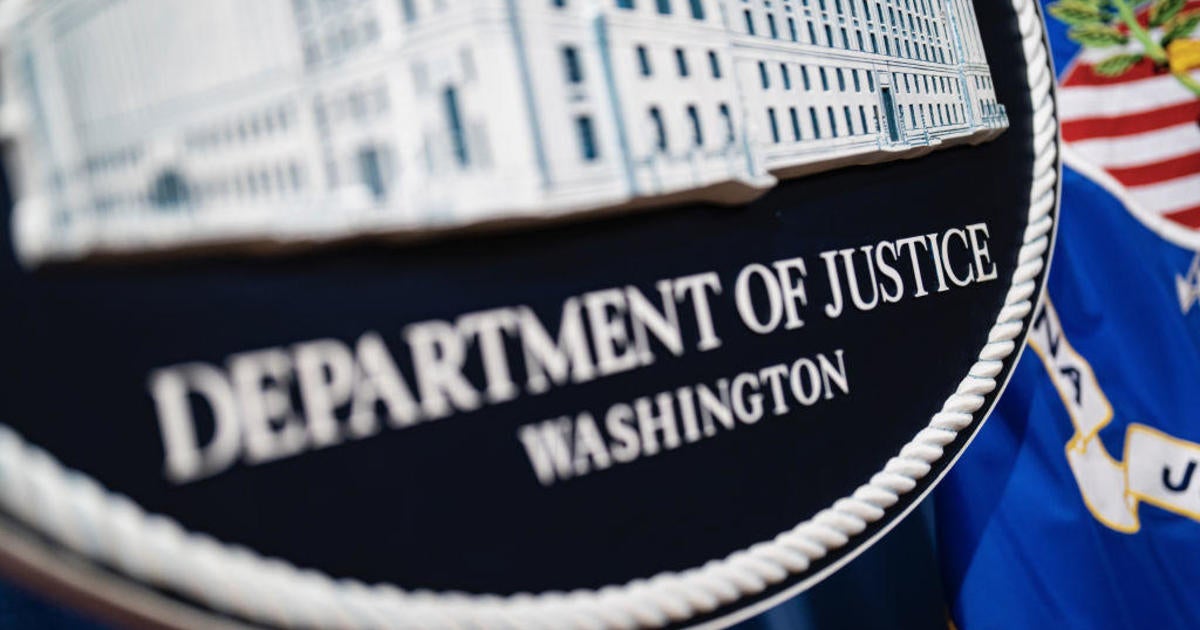President Trump's Immigration Policies: A Crackdown on State and Local Obstruction
Get ready, because the Justice Department is unleashing the full force of the law on anyone who dares to stand in the way of President Trump's immigration agenda! In a shocking move, Acting Deputy Attorney General Emil Bove issued a memo on Tuesday that sent shivers down the spines of state and local officials across the nation. This isn't just another bureaucratic memo; it's a declaration of war against anyone who obstructs the President's tough stance on illegal immigration.
Federal Authority Takes Center Stage
The memo is brutally clear: state and local governments must toe the line and cooperate fully with federal immigration enforcement. Bove cites the Supremacy Clause and various federal laws as legal justification, asserting the absolute necessity for state and local actors to assist in enforcing federal initiatives. Any resistance is met with a threat of federal investigation and potential prosecution. The memo makes it abundantly clear: interference with federal immigration policies will be swiftly and severely punished.
Targeting State and Local Opposition
This isn't a subtle threat. The message from the Department of Justice (DOJ) is forceful and direct. It directs US Attorneys' Offices and litigating components of the DOJ to aggressively investigate instances of state or local officials resisting or obstructing federal immigration actions. This includes a broad mandate to scrutinize behavior that in any way impedes the goals of the executive branch’s policies regarding immigration. This isn't about minor infractions; it's about systematic, complete compliance, or face serious consequences.
FBI Assistance and Data Collection
This crackdown doesn't stop at investigation. The memo directs FBI's Joint Terrorism Task Forces to help with executing President Trump's immigration agenda, even involving these typically terrorism-focused units. This is a sign that President Trump's plans for immigration may encompass broader goals involving suspected terrorists or similar suspects. In addition, the DOJ's law enforcement units, like the FBI and DEA, must identify within 60 days and share any relevant information concerning non-citizens within the U.S. with the Department of Homeland Security. This is a wide-net approach to the collection of intelligence in tandem with the increased federal action against those suspected to be connected to terrorism, drug trafficking or violent crimes.
Aggressive Prosecution Takes Hold
The DOJ isn't just targeting obstructive state officials; they are taking a significantly harsher approach to all cases. The memo reinstitutes the policy of charging defendants with "the most serious, readily provable offenses," a stark reversal from the more lenient charging policies under President Biden's administration. Expect harsher sentences and increased prosecution, signaling a drastic return to Trump-era practices. This part of the memo shows clearly that this isn't simply just about the handling of state and local obstruction to the Trump administration's goals.
Reversal of Biden-era policies
This dramatic change signifies a clear and comprehensive shift in departmental priorities. The focus on charging "the most serious, readily provable offenses" undercuts a key policy initiated by the previous administration. This move alone signals the intent of this directive and its focus to not merely address state opposition, but to also fundamentally shift prosecutorial discretion away from leniency towards a maximalist approach.
Immigration, Cartels, Violent Crime, and Fentanyl
The memo connects the dots between seemingly disparate issues: immigration, drug cartels, violent crime, and the deadly fentanyl crisis. These four problems are directly linked within the context of the memo and serve as the core reasons behind its justification and its policies' requirements.
Addressing the root of crime
By emphasizing the importance of identifying and acting on connections among these problems the Justice Department links them and positions it's new approach as one that directly addresses a broader set of related threats to the security and well being of Americans. The underlying purpose seems clear, in that any suspected connections between immigrants, criminal activity, and drug trafficking will lead to stricter prosecution of both.
New DOJ leadership driving the changes
Bove and Acting Attorney General James McHenry, both strong advocates of forceful immigration policy enforcement, lead the Justice Department as they await confirmation of their permanent replacements. Their roles in this effort suggest the continued strength of these initiatives into the foreseeable future.
Trump’s choices lead the fight
The deep background of the interim leadership positions makes it abundantly clear the continued direction the DOJ is headed. Both McHenry and Bove serve as solid examples of the goals of the policies expressed by President Trump regarding increased border security, harsher punishments, and stronger measures to increase the overall effectiveness and forcefulness of federal efforts at controlling illegal immigration.
Take Away Points
- President Trump's administration is taking an extremely tough stance against any interference with the goals and implementation of its new immigration policies.
- State and local officials face the serious threat of investigation and prosecution for impeding federal efforts.
- Federal agencies like the FBI and DEA will play critical roles in enforcing this policy and are actively searching for those they believe are involved in either circumventing the goals of the immigration plans, and are likely also to take similar action against any individuals thought to be involved in related crime or violence.
- This action will mark a fundamental reversal in the practices and prosecutions in a significant change from previous lenient policies to more forcefully aggressive approaches. This aggressive policy signals that this directive is expected to have far reaching consequences on a range of different sectors involved with immigration.




